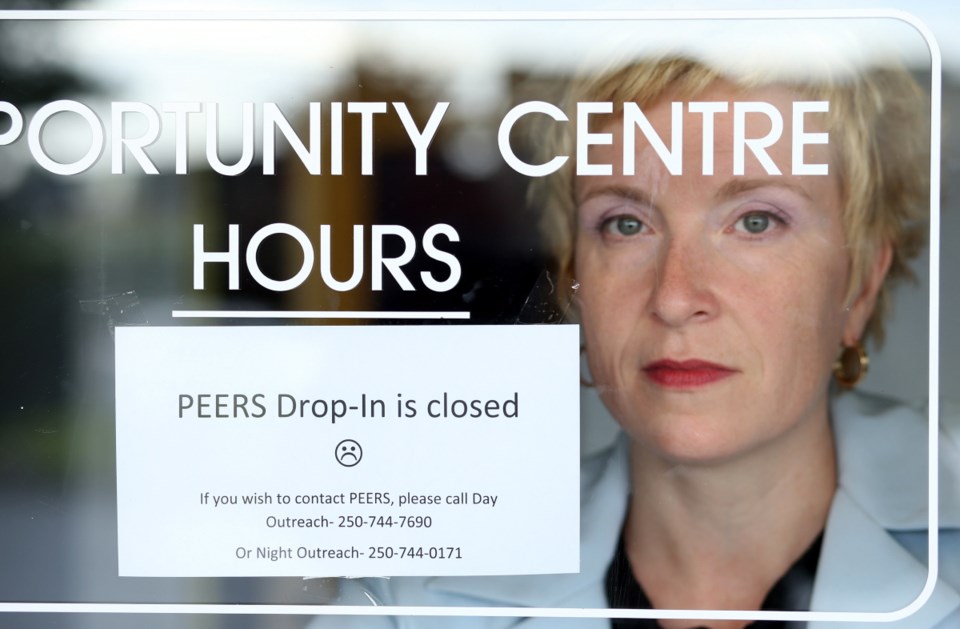The recent closing of a drop-in centre that provided safe, non-judgmental services for sex trade workers in Victoria might be the first casualty among specialized employment programs struggling to fit into a rigid new provincial case management system, critics warn.
The non-profit society PEERS was forced to close its centre and cancel an employment program after years of complicated funding restructuring that included a new “fee-for-service” model. The new billing system required that PEERS provide detailed personal information for its services, even though the society worked to support sex workers unconditionally and protect their confidentiality.
The extra administrative work and loss of privacy has raised concerns in the employment services sector that other programs for vulnerable groups might have to close, said Michelle Mungall, the MLA for Nelson-Creston and opposition critic for social development.
Mungall and Esquimalt-Royal Roads MLA Maurine Karagianis sent a letter to Don McRae, minister of social development and social innovation, this week, urging him to meet with PEERS to come up with a solution.
“It’s within his power to have this funding model reviewed so we don’t see other programs close,” Mungall said.
Neither McRae nor anyone from the ministry have been available for an interview since the PEERS closing was announced Monday. In a statement Tuesday, McRae said there would be no interruptions to services on the Island. However, only one of the 45 people registered in the fall session of the PEERS employment program qualified to register elsewhere.
“There was also a significant disruption for the 125 or so clients who regularly access the services surrounding our Elements pre-employment program,” said Marion Little, PEERS executive director, adding: “The other 345 or so clients who access our street outreach van now have no drop-in centre to transition toward.”
Jennifer DeLuca, executive director at WorkLink, one of the three employment agencies that subcontracted to PEERS, said the new billing model was never a fit for specialized programs.
“[The provincial employment program] has a list of things you can bill for and the types of pre-employment services PEERS offered aren’t reflected,” she said.
Specialized programs are subcontracted by employment agencies to fulfil a government mandate to reach marginalized groups, such as vulnerable women. Since the new employment program model began in 2012, subcontracted agencies have expressed concerns about the heavy additional administrative costs and consequent “feeling of inadequate service,” according to a 2013 survey of Vancouver Island organizations conducted by Development Action and Directis Consulting. Eighty-eight per cent of respondents said the Employment Program of B.C. had a negative impact.
“It’s totally turned our industry upside down,” said Victoria Pruden, executive director of Bridges for Women Society, which also serves vulnerable women. She described the closure of PEERS as “devastating” and said she has lost staff who felt the new integrated case management system put clients’ privacy at risk.
Bridges can’t serve some of the clients PEERS could, she said. Their clients must be sober, have a home and be out of abusive relationships to receive employment services.
Privacy is the other main concern about the integrated case management model, which gives multiple government agencies access to sensitive personal information about clients — and has experienced major technical difficulties since being implemented.
“Information is just floating all over the place now and it doesn’t work. It’s a complete and utter fiasco,” said Vincent Gogolek, executive director of the B.C. Freedom of Information and Privacy Association.
He acknowledged the government’s need for records and accountability in public spending but said agencies should keep their own records separate.



